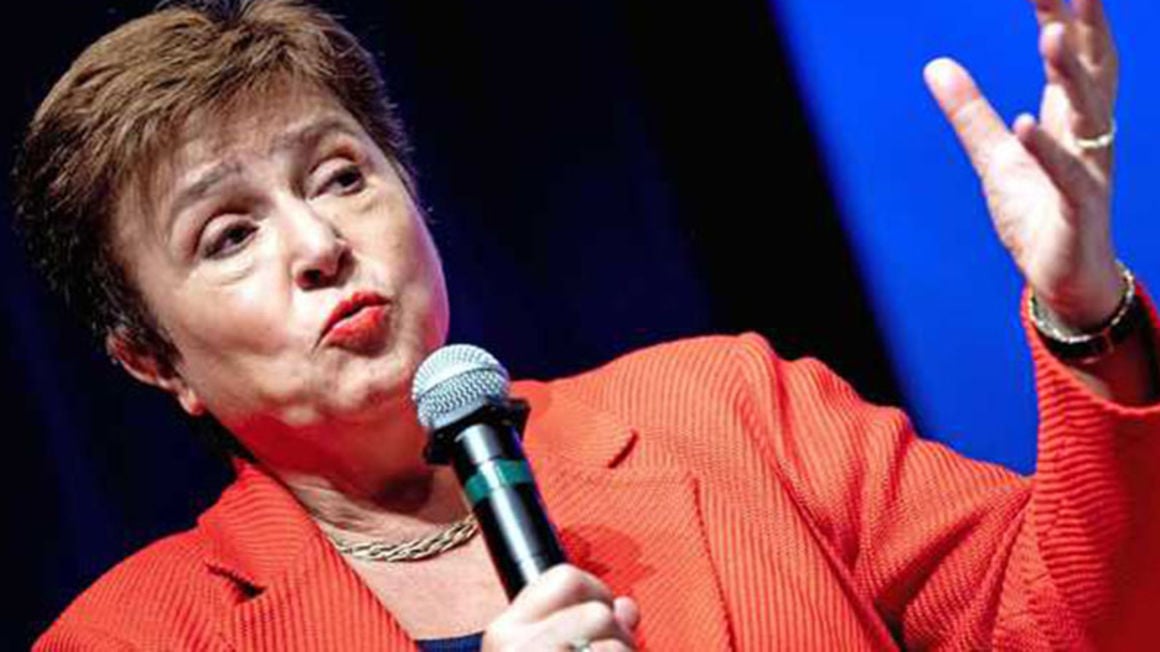
International Monetary Fund MD Kristalina Georgieva. AFP PHOTO
Summary
- The International Monetary Fund has pledged to continue loaning sub-Saharan countries into 2021 after the Bretton Woods body hit Sh1.7 trillion loans over the last six months.
- IMF said this year, it released $16 billion in loans and debt relief as emergency assistance but more would be needed since the global financial markets have become too expensive for small economies.
- The multilateral lender said the emergency loans to countries like Kenya have put them near limits set by the institution and hence they have temporarily increased annual limits.
The International Monetary Fund has pledged to continue loaning sub-Saharan countries into 2021 after the Bretton Woods body hit Sh1.7 trillion loans over the last six months.
IMF said this year, it released $16 billion in loans and debt relief as emergency assistance but more would be needed since the global financial markets have become too expensive for small economies.
The multilateral lender said the emergency loans to countries like Kenya have put them near limits set by the institution and hence they have temporarily increased annual limits.
“The IMF is stepping up efforts to continue this support in 2021. Many of the countries that have received funding from the IMF have reached, or are approaching, their relevant limits for annual access,” IMF said in ‘Sub-Saharan Africa regional Economic Outlook’.
“So the IMF has temporarily increased these annual limits and has allowed for more frequent disbursements under the Rapid Credit Facility, allowing members to obtain further financial support from the IMF during this extraordinary period.”
In May, the IMF approved a $739 million (Ksh79.3) billion loan to Kenya to help the country fight Covid-19.
They joined the World Bank which gave Kenya’s health ministry Sh5.3 billion ($50 million) and a further Sh106 billion ($1 billion) loan to help fund the budget during the pandemic.
The loans which are usually long term, low interest and have a grace period for payment will help treasury balance its books that lately has seen Kenya use a third of all exports earnings just to service commercial debts.
Kenya has increasingly tapped the foreign commercial markets for loans has come under pressure during repayment since the country relies on getting new loans to repay its principal obligations.
By the end of June 2020 the total cumulative debt service payments to external creditors amounted to Sh223.4billion. This comprised of Sh101.6billion (45.5percent) principal and Sh121.8billion (54.5percent) interest according to the Treasury Budget Review Outlook paper.
The total cumulative debt service payments to external creditors comprised of 54 percent, 33 percent and 13 percent of the total payments to commercial, bilateral and multilateral creditors respectively.
The IMF loan comes at a time when concerns have been raised over how Covid-19 funds are being used in Kenya after it was revealed that the country was splashing millions of shillings on non-essentials as well as buying 'tea and snacks' at inflated prices.
A special audit also revealed a Sh7.8 billion tender scam at the Kenya Medical Supplies Authority – KEMSA over the handling of emergency procurement of medical supplies which saw politically connected companies clinch tenders some of which were inflated.
IMF acknowledged the concerns but said many countries have undertaken to put in place enhanced governance measures to track COVID-19-related spending, including independent audits of crisis-related spending and the publication of crisis-related procurement contracts including Kenya, Cameroon, Central African Republic, Chad, Uganda São Tomé and Príncipe.
South Africa, has authorized special units to investigate allegations of the misuse of government funds (South Africa).




No comments :
Post a Comment